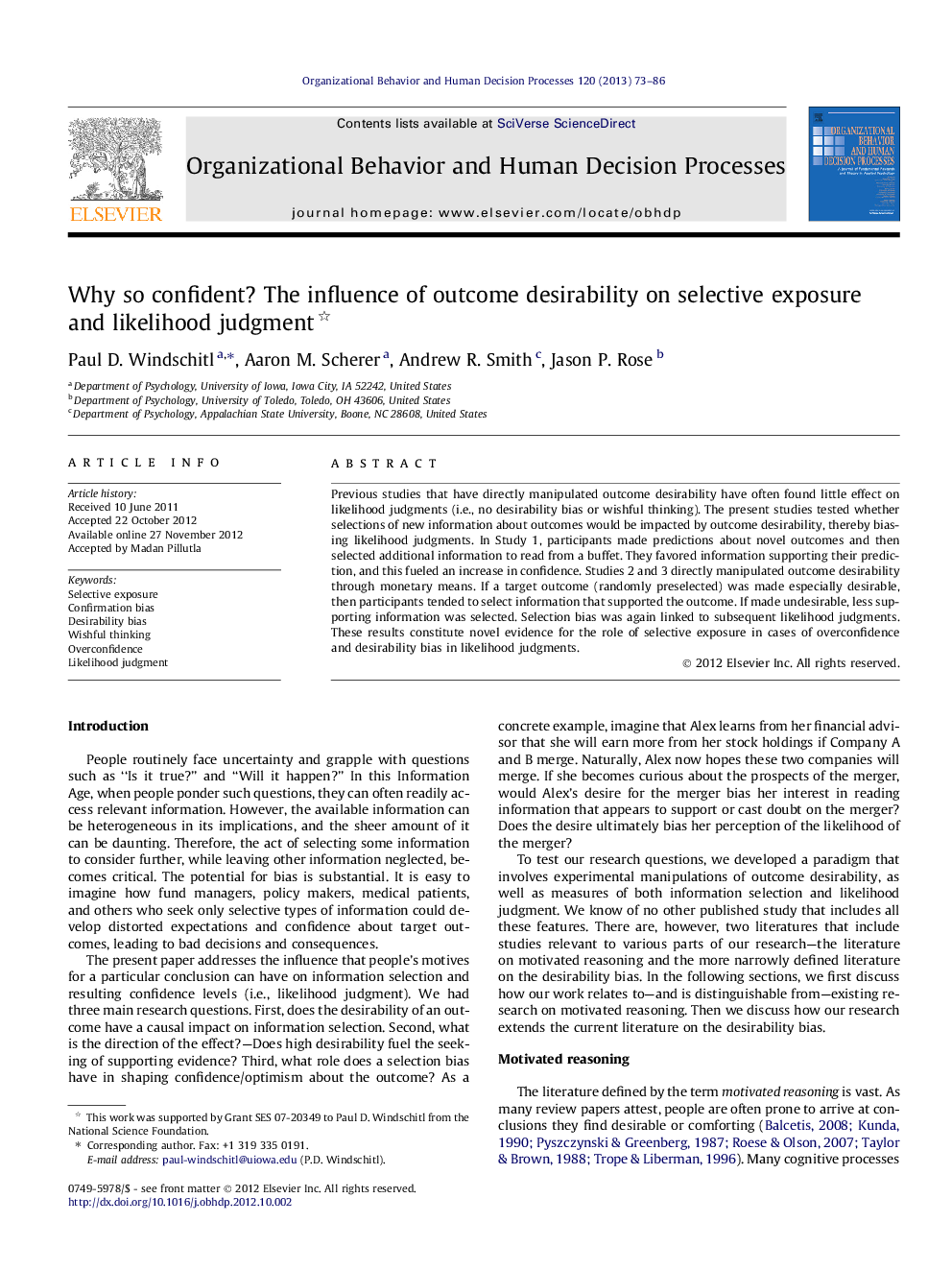| Article ID | Journal | Published Year | Pages | File Type |
|---|---|---|---|---|
| 888646 | Organizational Behavior and Human Decision Processes | 2013 | 14 Pages |
Previous studies that have directly manipulated outcome desirability have often found little effect on likelihood judgments (i.e., no desirability bias or wishful thinking). The present studies tested whether selections of new information about outcomes would be impacted by outcome desirability, thereby biasing likelihood judgments. In Study 1, participants made predictions about novel outcomes and then selected additional information to read from a buffet. They favored information supporting their prediction, and this fueled an increase in confidence. Studies 2 and 3 directly manipulated outcome desirability through monetary means. If a target outcome (randomly preselected) was made especially desirable, then participants tended to select information that supported the outcome. If made undesirable, less supporting information was selected. Selection bias was again linked to subsequent likelihood judgments. These results constitute novel evidence for the role of selective exposure in cases of overconfidence and desirability bias in likelihood judgments.
► The paper focuses on information selection and confidence about outcomes. ► We found that irrelevant desirability of an outcome influences information search. ► The biased search thereby inflates confidence regarding outcome. ► We distinguish among bracing, stake-likelihood, and desirability hypotheses.
